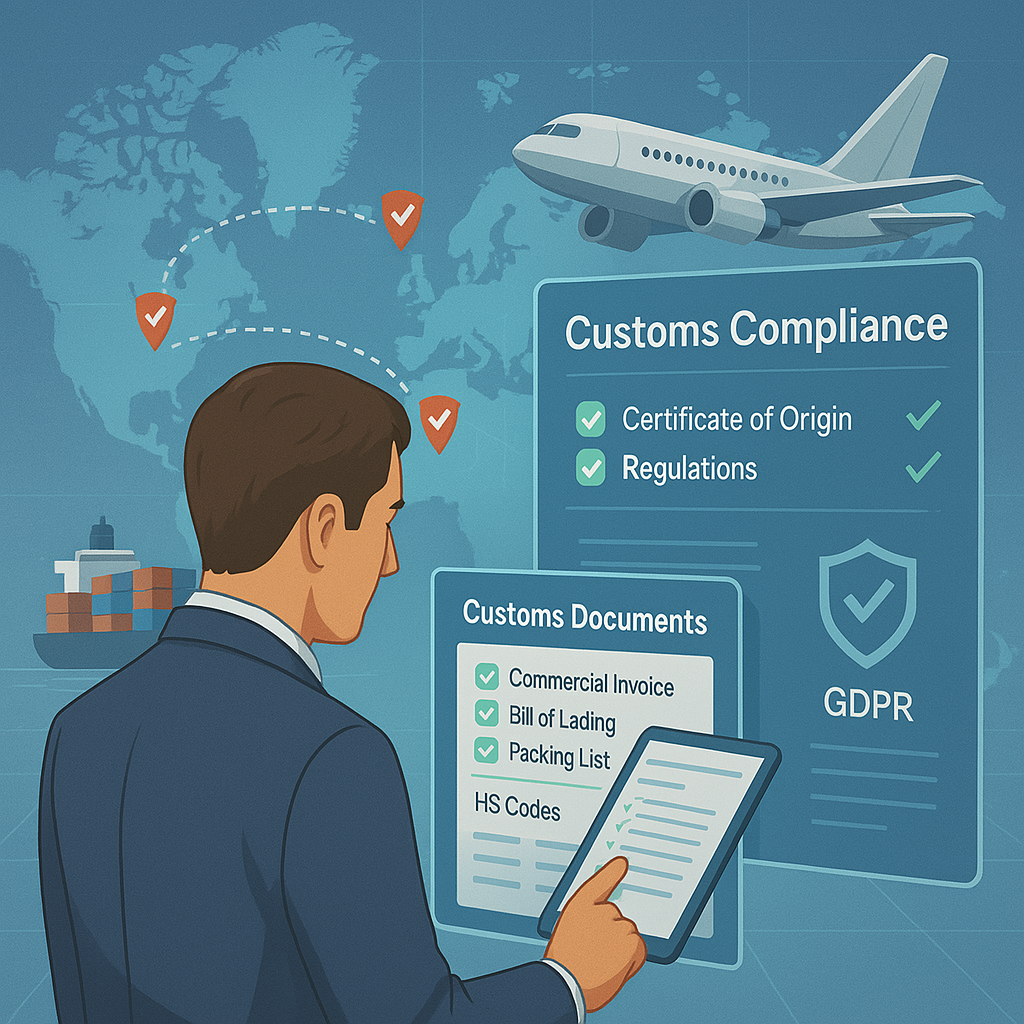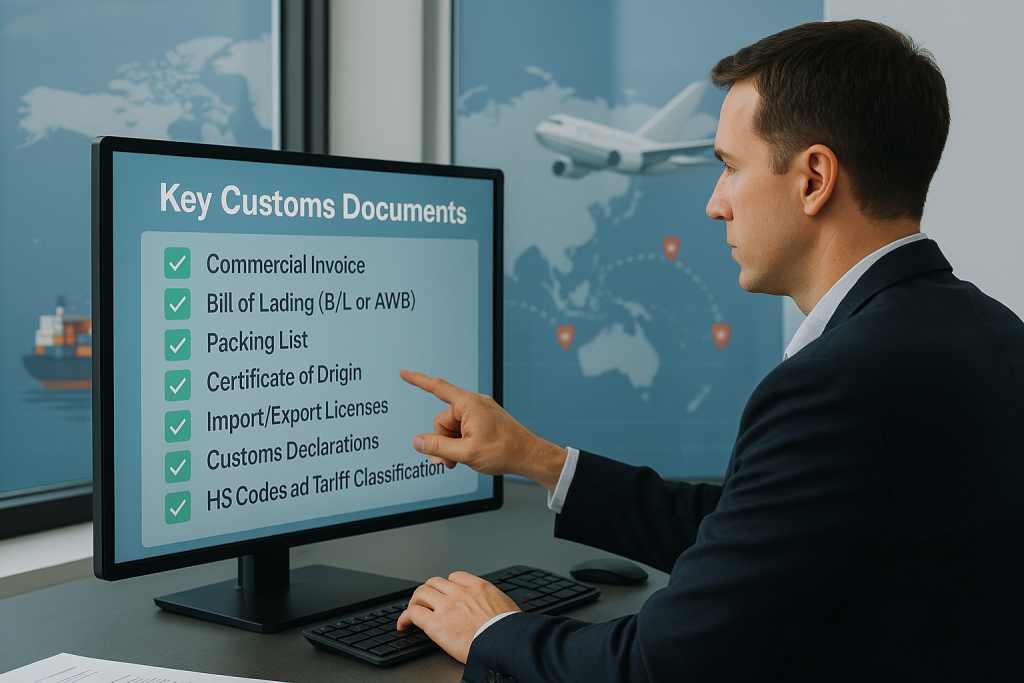Customs and Compliance in 2025: What Forwarders Need to Know
For freight forwarders, staying compliant is no longer just about avoiding fines — it’s about protecting your business, speeding up shipments, and maintaining trust in global trade.

⚠️ Why Compliance Has Become a Top Priority
🌍 Increasing Global Regulation
Countries are enforcing stricter digital filing systems (like ACE in the U.S., ICS2 in the EU, and Japan’s NACCS), making real-time, paperless compliance a must.
🔐 Data Privacy + Security
Regulations like GDPR, CCPA, and data-specific requirements around AI and automation in customs processes require secure, transparent handling of documents and client data.
🚨 Penalties Are Higher
Non-compliance can result in delayed cargo, monetary penalties, audits, and even blacklisting in sensitive trade zones.
🧾 Key Customs Documents Forwarders Must Manage
Here’s what your software should help automate or validate:
- Commercial Invoice
- Bill of Lading (B/L or AWB)
- Packing List
- Certificate of Origin
- Import/Export Licenses
- Customs Declarations
- HS Codes and Tariff Classification
- Proof of Delivery (POD)
📋 Each document must be accurate, time-stamped, and digitally accessible.

💡 What to Look for in Customs Compliance Software
✅ 1. Automated Document Generation
Pre-fill customs forms based on shipment data and templates.
✅ 2. Real-Time Regulatory Updates
Stay compliant with changes in tariff codes, documentation formats, and trade agreements across different regions.
✅ 3. HS Code Validation & Classification Support
Get smart recommendations for Harmonized System codes and catch misclassifications before submission.
✅ 4. Audit Trail and Digital Archive
Securely store records with timestamps and access logs to support internal audits or customs checks.
✅ 5. Multi-Country Customs Filing Support
Enable integration with customs systems across multiple geographies (e.g., U.S. CBP, EU ICS2, Canada CBSA, etc.).
🚀 Bonus: How Software Streamlines Compliance
By implementing customs compliance software, freight forwarders can:
- Reduce human error and rework
- Speed up clearance processes
- Improve communication with customs brokers and clients
- Lower the risk of non-compliance fines
- Gain visibility into where documents are missing or delayed
⏱ Automating compliance saves both time and reputation.

📌 Conclusion: Be Proactive, Not Reactive
In the fast-moving world of international logistics, customs compliance isn’t optional — it’s strategic. Forwarders that invest in the right tools can avoid disruption, increase efficiency, and build stronger relationships with global partners.
Customs compliance software empowers your team to stay organized, stay informed, and stay compliant — every step of the way.
